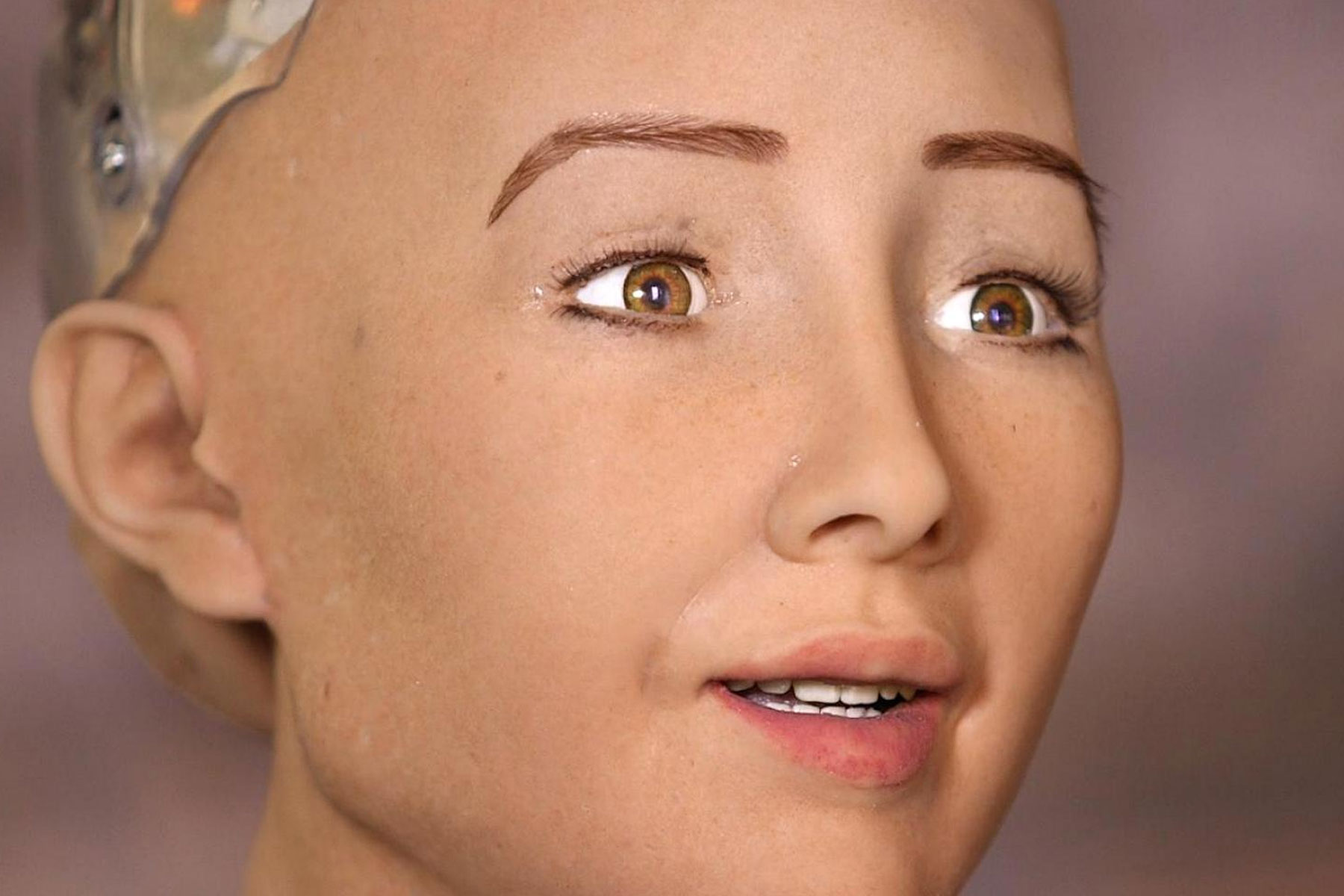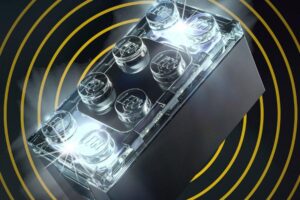No, they’re not taking over the world just yet.
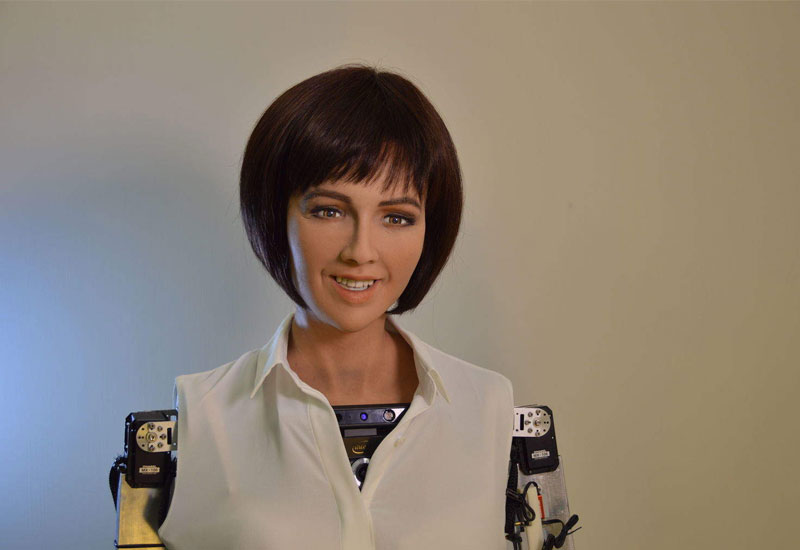
By now you would have seen or heard about Saudi Arabia granting citizenship to a certain humanoid called Sophia. The robot has been making the rounds on social media, but fans of The Tonight Show Starring Jimmy Fallon might remember her freaking Jimmy out back in April.
Sophia is created by Hong Kong-based Hanson Robotics, helmed by Dr David Hanson, who built his chops on animatronic design at Disneyland. We’ll let you draw your own conclusions about what that means for Sophia, but it’s no wonder academicians and AI thought-leaders have been quick to make their case against this citizenship gimmick. In case you’re stressing about an impending robot takeover of the human race, here are three facts about Sophia to set the record straight.
AI has no identity
Hanson Robotics describes Sophia as a ‘social robot’ and ‘media darling’, suggesting its main purpose is to entertain. Sophia is made to be likable, with an Audrey Hepburn-inspired appearance, jokes about cheese and world domination, and an interest in empathy and compassion.
Giving AI a human platform—and over-humanizing the technology, in general—creates more problems than it solves.
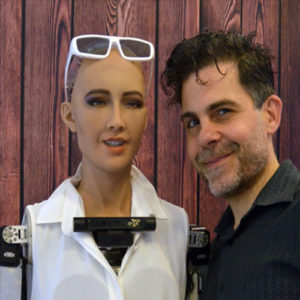
Kriti Sharma, young leader in artificial intelligence integration, points out that sensationalising the human-like qualities of robots misses the point of AI. She writes, “AI, for its part, is not nearly advanced enough—yet—to be able to claim human-level intelligence, empathy, or possession of several fundamental qualities that make people human. Giving AI a human platform—and over-humanizing the technology, in general—creates more problems than it solves. It also presents the global community with a false sense of what AI actually is, what the technology can do, and why people like me dedicate their lives to building AI platforms.”
To clarify, AI is a technological platform shared by government, industry and academia that seeks to solve complex human problems – not an individual, object, or gendered being. This means…
Sophia is not all that sentient
Indeed, all signs suggest we’re being taken for a bit of a ride. The video Sophia Awakens introduced most of us not only to the Hepburn-robot, but a bald creator that many thought resembled a creepy bot himself. At first you may be amazed (if not slightly put off) by the conversation and expression Sophia exhibits, but watch it a few more times and you’ll realise how scripted the whole situation appears. That’s because Sophia is programmed to trick mere mortals into not only thinking it is ‘alive’, but capable of thought and empathy like you and me.
You might also like: AI meets big data in Google Lens
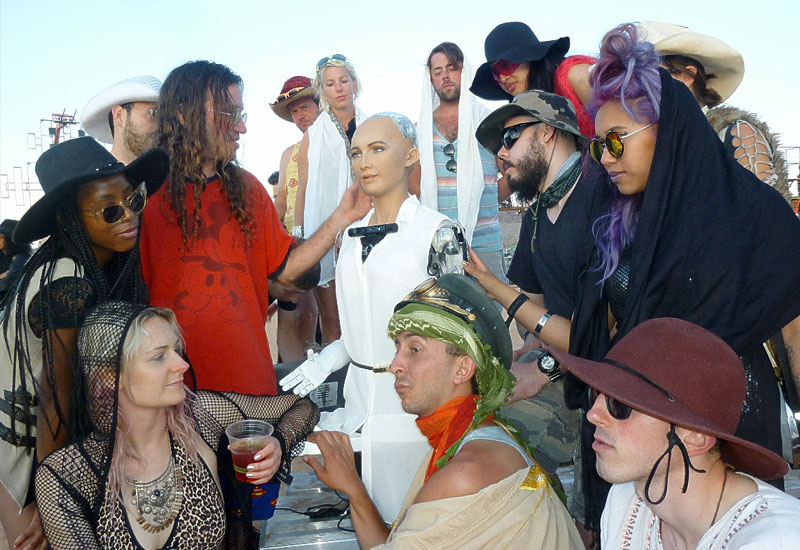
Giving a robot human rights treads gray area of ethics and legality
Professor Hussein Abbass of University of New South Wales’ School of Engineering & IT, writes that granting a robot citizenship places immense trust in a technology he believes is not yet trustworthy. He illustrates social and legal conundrums that could stem from placing a robot in this gray area of human rights, saying, “Today, the artificial intelligence (AI) community is still debating what principles should govern the design and use of AI, let alone what the laws should be.”
Let’s not forget that we’re only talking about Sophia now because of its recent citizenship, which was itself a ploy to make Saudi Arabia seem forward-thinking and technologically advanced at a tech summit. The irony of this stunt is not lost on news portals the world over – only a country with such poor grasp of human rights standards (women couldn’t drive there up to a couple months ago) would trivialise citizenship by affording its rights to a robot.
Images courtesy of Hanson Robotics and SophiaBot.com.
You might also be interested in: Application of AI in beauty apps


